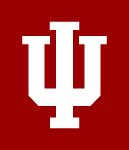Minors
IT is the systematic study of computation, hardware systems, software systems, and networks, combined with the design and analysis of algorithms and data structures. It is the foundation upon which all branches of information technology rest. Students learn to design and implement systems; to manage and visualize data, control robots, model human cognition, extract information from vast volumes of data, etc. Computer Scientists build the computing tools used by professionals in virtually all disciplines.
IT provides you technology education to solve real world problems. It gives you a structural path to a bright future in information technology careers while also providing the flexibility you need to study what you love. As an informatics student, you won’t just study information technology. You will model how technology impacts the academic disciplines that interest you most. Informatics is the understanding of information technology, its impact on society, and its applications to various fields such as biology, health care, chemistry, arts, business, music, philosophy, and psychology.
- The Minor in Computer Science provides solid foundation to computer science and computer programming; it will allow students to understand how computer programs work and to develop software solutions to real-world problems. It will also allow students who are majoring in other fields such as psychology, philosophy, criminal justice, biology, physics, chemistry, actuarial science, new media, business, health sciences, sociology, anthropology, etc. to gain understanding of the computing that takes place in these fields, and also allow them to develop basic software systems to solve domain specific problems.
- Students take courses in structured programming, object-oriented programming, and data structures. Students are exposed to operating systems and two additional courses in an area of computer science (applied deep learning, artificial intelligence, computer graphics, databases, embedded systems, game programming, mobile computing, security, software engineering, web programming, etc.)
- This minor will also allow students to continue their education beyond with a B.S. degree in Computer Science or Informatics.
- Minor Requirements: 2023-24 Bulletin
-
- The Minor in Computer Applications provides students with the knowledge and understanding of various information technologies. It provides the necessary technical expertise to those who currently hold positions that make extensive use of computer technology and its applications but feel a gap in their knowledge or those who are considering such positions in the future and need solid knowledge and expertise in the use and integration of computer applications and introduction to various ways computers are used to solve problems.
- Potential students who may benefit from this minor may be found in many organizations, including business, health care, science and engineering, government, and not-for-profit agencies. In addition, existing students at IU South Bend, may find this minor complementary to their major.
- Students can take courses related to computer hardware and software components and learn how they operate, learn common office automation and productivity application software, introduction to operating systems, problem solving using programming, introduction to event driven programming and graphical user interfaces, introduction to web programming, introduction to computer networks and the client/server computing model, and introduction to multimedia arts and technology.
- Minor Requirements: 2023-24 Bulletin
-
- The use of technology and analytical methods has become increasingly important in our global society. Such massive use of technology has in turn created a growing demand for technically adept employees. The Minor in Informatics provides the necessary technical expertise to student who are seeking a broad understanding of information technology, its social and psychological dimensions, and its application to the students’ chosen disciplines (STEM, Psychology, Business, Health Sciences, Education, Engineering, etc.)
- Minor Requirements: 2023-24 Bulletin
-
-
Participate in small graduate classes to allow extensive interaction with professors and fellow graduate students.
-
Attend graduate classes that often meet during weekday evening hours to accommodate the schedules of employed adult students.
-
Computer Science focus area students could apply for scholarships.
-
Learn from computer science faculty with diverse research interests including algorithms, software engineering, computer graphics, databases, computer networks, parallel processing, distributed computing, artificial intelligence, computer security, bioinformatics, computer vision, machine learning, quantum computing, and wireless networks.
-
Learn from mathematical sciences faculty with diverse research interests including differential topology, differential equations, dynamical systems, modeling, operations research, simulations, scientific computing, statistics, and group theory.
-
Access to the department's dedicated laboratories running Windows, Linux, and MacOS.
-
Access to IU's specialized research computing infrastructure including IU's Big Red II supercomputer, mass storage, as well as visualization systems.
-
-
According to bls.gov "Employment of computer and information technology occupations is projected to grow 12% from 2018 to 2028, much faster than the average for all occupations. These occupations are projected to add about 546,200 new jobs. Demand for these workers will stem from greater emphasis on cloud computing, the collection and storage of big data, and information security. The median annual wage for computer and information technology occupations was $86,320 in May 2018, which was higher than the median annual wage for all occupations of $38,640."
-
- Information on a certificate for Computer Programming,Applications or Advanced Certificates check out Undergraduate Certificate
- Graduate Certificate in Technology for Administration
- B.S. in Computer Science
- B.S. in Informatics (Face to Face and Online)
- A.M.C.S M.S. in Applied Mathematics and Computer Science (Computer Science, Data Science, Mathematical Sciences, and Integrated)
-
- Students should contact the department administrative assistant before their first semester to schedule a meeting with a computer science advisor to develop a plan for their academic course of study.


